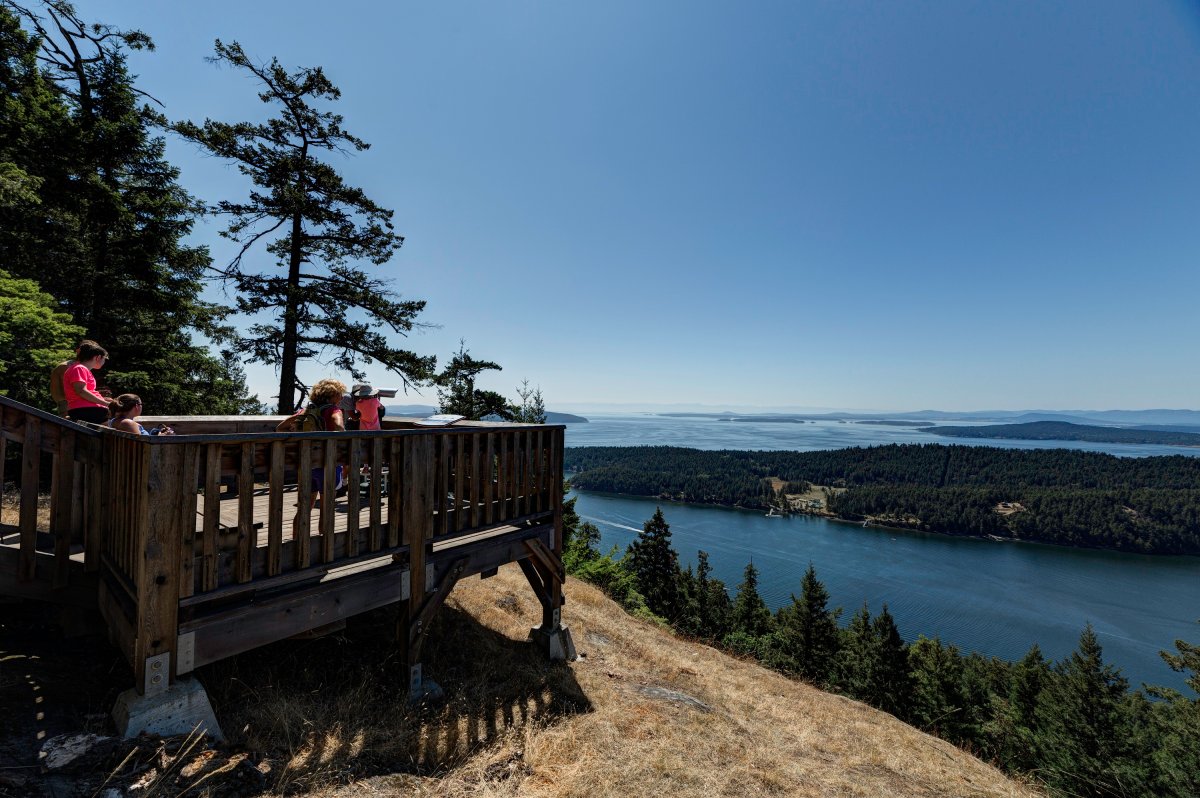Across British Columbia, high temperatures and low reservoir levels are causing concern.

But on the Gulf Islands, where most areas are serviced solely through creeks and wells, the worry is particularly acute.
“There’s an increasing awareness that drawing water from your well has other impacts,” says Peter Luckham, chair of the Islands Trust.
Luckham lives on Thetis Island, which like the majority of islands in the Strait of Georgia, rely primarily on wells and creeks for their water.
But with most wells and creeks at record lows for this time of year, and no relief on the horizon, there are plenty of people shipping in water from private companies on Vancouver Island – partly for their own benefit, and partly to conserve what water is left on their islands.
“Some of them are businesses and tourist operations. Some of them are simply households that have vegetable gardens and even ornamental flowers that they’ve come to expect in their lives. In good conscience, they have to find some alternative way to provide water to them,” he says.
Luckham has lived on Thetis Island for 27 years and has noticed gradually reduced well levels over the last decade. He says his family preserves water by, among other things, using wastewater from the sink to water plants around the house.
“When you’re rinsing off a bowl or two in the sink, there’s maybe half a litre that goes down. Add it up, that’s two, three, four litres a day that we’re saving.”
North Salt Spring Water Works provides water to the majority of Salt Spring Island, including the main town of Ganges.
Meghan McKee, water quality specialist with the company, says their two primary water sources — Maxwell Lake and St. Mary Lake — are at record lows for this time of year.
“We anticipate that we will have enough water to get through the summer, however the concern is about it refilling in the winter,” she said.
With the Gulf Islands in stage four drought conditions, people are only allowed to do one hour of handheld watering every second day on their lawns and gardens, and no watering of public spaces is allowed.
However, the situation will become more dire if a dry summer is followed by a dry winter – a distinct possibility.
“In general, this year is giving us a very good idea of what the future may hold,” says McKee, who urges Gulf Island residents, businesses, and tourists alike to abide by the restrictions in place.
“This is what really described in the predictions for our region. We have seen our drought period getting longer and longer…This drought is an acute problem, but actually the overall problems with water management is an acute problem.”
Water levels for North Salt Spring Water Works’s two main sources of water








Comments